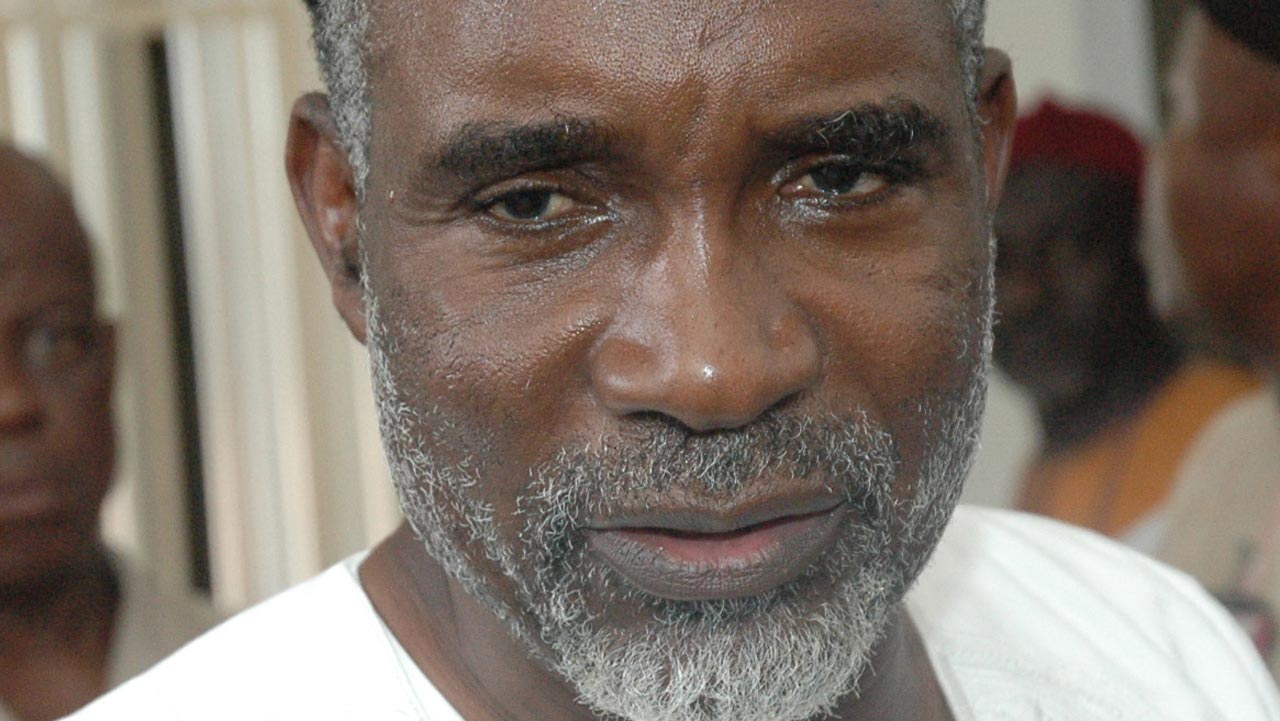Murtala Nyako, a former governor of Adamawa State, on Wednesday, March 11, 2020, urged a Federal High Court in Abuja to strike out the alleged N29 billion money laundering charges filed against him and others by the Economic and Financial Crimes Commission, EFCC.
The anti-graft agency is prosecuting the former governor alongside his son, Abdul-Aziz Nyako; two companies, Sebore Farms and Extension Ltd and Pagado Fortunes Ltd. They are first, second, sixth and seventh defendants respectively in the trial.
Other defendants are Zulkifik Abba, Abubakar Aliyu, Blue Opal Ltd, Tower Assets Management Ltd and Crust Energy Ltd as third, fourth, fifth, eighth and ninth defendants respectively.
The EFCC had arraigned them on on a 37-count charge of criminal conspiracy, stealing, abuse of office and money laundering.
In the course of the trial, the anti-graft agency called 21 witnesses to establish its case against the defendants.
But Nyako, in a no-case submission motion filed by his team of lawyers led by Kanu Agabi, on behalf of first, second, sixth and seventh defendants, contended that “no case has been made out by the prosecution warranting an answer from them.”
They argued that from the testimonies of the 21 witnesses called by the prosecution, there was no shred of evidence that suggested even remotely that a case had been made out against them.
“Apart from the fact that the charges are in themselves incompetent and irredeemably bad, thereby rendering the entire trial a nullity,” they said.
According to defendants, the EFCC made allegations against persons and companies who were not charged.
“The allegations made against these companies and individuals constitute elements of the offenses charged.
“In order to succeed in all the counts, these elements must be proved. These elements cannot be proven behind the back of the companies and individuals against whom the allegations were made, having not been charged.
“Even if these companies and individuals were called as witnesses, that would not have been sufficient. But none of them except Mary P was called.
“The failure to charge these companies and individuals against whom allegations were made in these counts constitute a failure of the prosecution to prove essential elements of the counts.
“Accordingly, the charges laid out in Counts 1, 2, 3, 4, 5, 6, 7, 8, 8, 9, 11, 12, 13, 14, 17, 18, 19, 20, 21, 22, 23, 29, 30, 31, 32, 33, 34, 35, 36 and 37 fail on that account,” the defendants added.
They further argued that the essential elements of the offenses charged had either been omitted or not proved.
“Under Sections 302 and 303 of the Administration of Criminal Justice Act, ACJA, 2015, the failure to prove an essential element of the offense charged is a ground for upholding a submission that the prosecution has not made out a case warranting an answer from the defendants,” they held.
However, at the resumed hearing of the case on Wednesday, March 11, 2020, the EFCC lawyer, Oluwaleke Atolagbe, told Justice Abang that the commission intended to comprehensively respond to the first, second, sixth and seventh defendant’s no-case submission.
Atolagbe told the court to give him seven days within which to file his responses.
Following this, the judge gave the prosecution seven days to file and serve their written address in objection to the defendants’ no-case submission. He said the defendants would be at liberty to file and serve their reply on point of law within seven days.
Abang adjourned the matter to March 25 for parties to adopt their written addresses for and in opposition to the defendants’ no-case submission.
Hattip to Tribune







